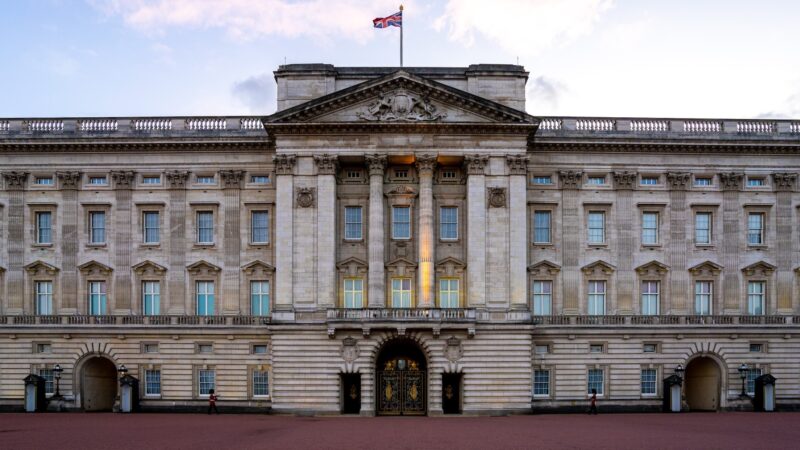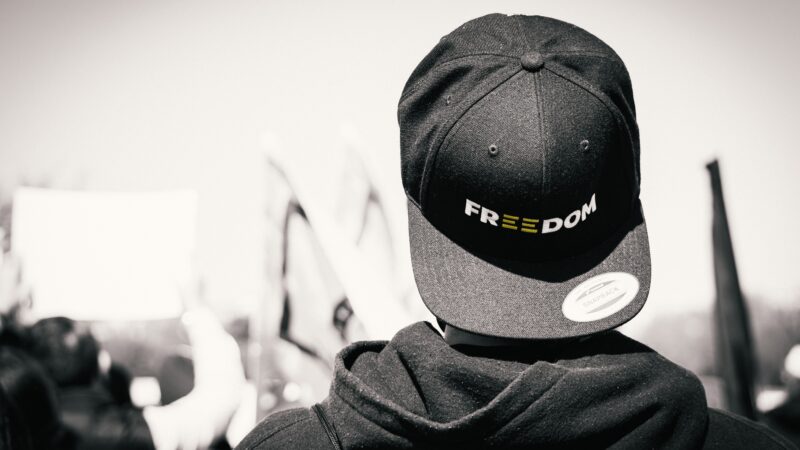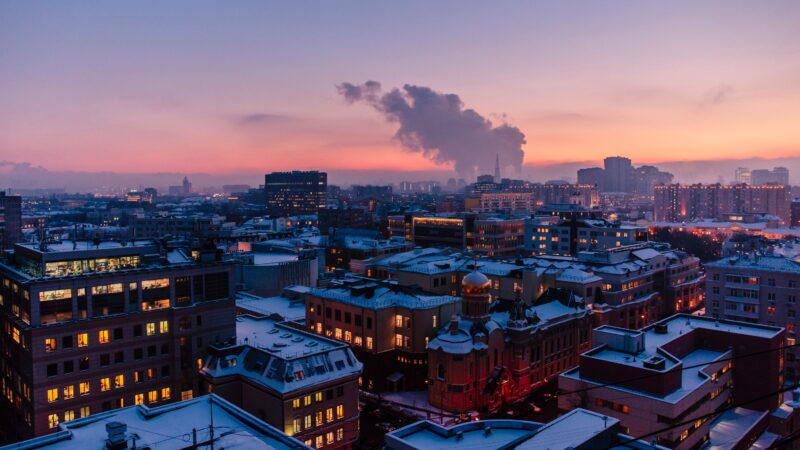At the end of last month, the first results of the 2021 UK Census were published. As many will recall, the results were simultaneously, although not quite paradoxically, shocking and expected. The information published showed that 1 in 6 UK citizens are born in another country – ten million of the UK’s 69 million; a 33% increase from the 7.5 million a mere decade ago.
The details were shocking insofar that few expected a demographic shift of such extreme proportions, even when compared to the last census in 2011. Nevertheless, they were expected. As anyone with an elementary understanding of British politics knows, the political system has pursued, less-so out of empirical consideration and moreso out of humanitarian (“it’s our moral obligation!”), diveristiarian (“diversity is our strength!”), and utilitarian (“immigration grows the economy!”) dogma(s), a policy of mass immigration since the late 1990s.
Just last week, data from the ONS showed that migration into Britain had reached a new record of 504,000 – a net increase of over 331,000 from the year prior. Keep in mind, all of this has happened despite the public’s clear and consistent opposition to immigration, nevermind the magnitudinous demographic change it has caused.
As soon as the data went public, one could piece together the overarching division of attitudes. Some welcomed the rapid erosion of Britain’s native-born citizenry. By contrast, the murmurs of the moderate-minded indicated a sense of foreboding. If the data on citizenship is this demographically untenable, what on Earth is the data regarding national identity going to look like?
Well, now we know. Reported by the ONS, the UK 2021 Census showed:
“81.7% of residents in England and Wales identified their ethnic group as within the high-level “White” category in 2021. A decrease from 86.0% in 2011.
As part of the “White” ethnic group, 74.4% of the population in England and Wales identified their ethnic group as “English, Welsh, Scottish, Northern Irish or British. This is a continued decrease from: 80.5% in 2011 and 87.5% in 2001.”
As with the initial citizenship data, many celebrated this seismic change, suggesting that fewer white British Christians in Britain amounted to a moral improvement.
On the other hand, some deemed the largest demographic shift since late antiquity to be completely ineffectual. Directed at Nigel Farage’s reaction to the census, which underscored the shrinking ethnic British population in London, Conservative MP Sajid Javid tweeted a forthright and mask-off response: “So what?”.
“It’s not happening and that’s why it’s a good thing” as the saying goes.
Nevertheless… So what? Well, for a start, it shows that the 2011 Census wasn’t a one off, but signified the start of an unprecedented trajectory: the continuous decline of the ethnically British population. On its own, this should be alarming, but the fact this demographic shift has occurred within a single generation makes it even moreso. Needless to say, but worth saying nonetheless, to do so without consultation from or consideration of those implicated is, to put it moderately, extremely irresponsible.
Moreover, what good is talk of “integration”, the oft-proposed silver-bullet to the consequences of immigration, if the historical ethnocultural in-group, the one which immigrants are supposed to integrate, cannot sustain its hegemony? At most, they’ll “integrate into” (perpetuate) a godless ratrace; a demoralising sluggish existence against the world’s richest on the housing market and the world’s poorest on the labour market. As Morrissey says: shelve your Western plans… Life is hard enough when you belong here.
As it stands, numerous communities across England and Wales are majority-minority – where the national majority group constitutes a local minority – a fact which makes panicked rhetoric about rhetorical divisiveness all the more out-of-touch. Mutually-segregating, and often mutually-loathing, communities have been around for decades, the census just reaffirms this reality.
More to the point, who could expect integration? Flimsy abstractions of Britishness aren’t holding British society together. Having a cuppa, forming an orderly queue, and appealing to vague, arbitrary, and contradictory notions of “tolerance” and “inclusion” and so on just doesn’t cut it. What is a nation, especially a democratic one, if it cannot inspire loyalty?
The rate of immigration and concentration of immigrant and immigrant-descended populations diminishes any incentive or expectation of integration, no matter how willing the native population is to water down the criteria of national belonging. If people can choose to associate and live amongst their kind, they shall do so – as has been the case since the dawn of time. Blood is thicker than water, even if the water is boiled, milked, and caffeinated.
But beyond a debate of causation, whether it’s a case of “can’t integrate” or “won’t integrate”, both instances point to the same overarching problem: Britain is fragmenting.
In order to accommodate the contradictory complexities of the world, primarily a consequence of the similarly unwanted reimagination of Britain as a “global” entity, “Britishness” has been reconfigured from a distinct identity – something that people indivisibly are, that their parents are, that their parents’ parents are – into a bureaucratic technicality – something that people can have, should and whenever they be so inclined; from a complex and unique ethnocultural particularity to a two-dimensional universality.
This fact, combined with evidently unmanageable and unpopular immigration numbers, is not a good omen. Rather, it risks gradually wiping Britain from the face of the Earth; from its unique and beautiful place in relation to a global diversity of similarly unique and beautiful ethnocultural organisms to a crude amalgamation of all-else, pathetically bound though an appeal to inoffensive all-inclusive emptiness.
All the more fitting then that the census should also reveal a collapse in religiosity. In a nation where church and state are bound, less than 50% (46.2%) of the population identifies as Christian – down from 59.3% in 2011. Simultaneously, those self-identifying as having “no religion” surged from 25.2% to 37.2%. This is the first time in 1000 years that Christainity is not the majority faith.
Of all the census details, this is perhaps the least surprising. For decades, we’ve barely considered ourselves “Cultural Christians” – those that tick the box, but don’t attend the service. In this regard, the 2021 Census is merely a formal confirmation of long-waning Christainity.
Who could have seen any of this coming? Actually, quite a few people. Back in 2011, then-UKIP leader Nigel Farage, citing statistics published by Migration Watch, said that the UK could expect 50,000 Romanians every year over the course of ten years.
At the time, these numbers – as well as millions of ordinary people – were lampooned and ridiculed by the media, politicians, comedians, and (most damning of all) the Experts (the Serious People that Know Things), as delusional racists, fruitcakes, loonies, and so on.
Nevertheless, a decade later, that is exactly what has transpired. The census revealed that the number of Romania-born people living in the UK amounted to 539,000 – a 576% increase from 2011.
It’s no secret that Farage’s acknowledgement of immigration-led displacement of white Britons was one of his early selling points. Indeed, it was arguably as important (if not more important) than his euroscepticism. As has been established time and again, the latter is very much a product of the former. As such, it’s rather uncharitable to interpret his aforementioned comments with regard to London as anything but a reiteration.
Additionally, there’s David Coleman, former Professor of Demography at Oxford University, who predicted back in 2013 that, if demographic trends continued, “white Britons could be a minority by 2066” – a prediction which not only remains valid after the 2021 census but, evidently, did not assist him in retaining his then-already under-pressure position.
Granted, these are only notable examples. I cannot begin to imagine the number of normal people that have lost their livelihoods for concurring with such predictions, nevermind articulating the sentiment that they spelt trouble. Not even then does this account for those who have been scared into silence by active legislation and the fear of a vitriolic social death. You can be targeted for far less.
The inability to talk about matters in a frank, open, and civilised manner compounds problems which arise from matters which provoke the desire to discuss them in the first place.
On the religious front, Peter Hitchens has written and spoken about Britain’s post-Christainity on multiple occasions. Ever since WW1, Britain’s religiosity ceased to be sincere, instead being a series of motions undertaken without spiritual, theological, or moral investment. Now that there’s no room for doubt, one can expect the iconoclasts of Diversity and Inclusion to erase whatever hollow secularised traces of Britain’s Christian identity still exist in public life.
Put diplomatically, none of this is sensible. Quite the contrary, all these convergences spell catastrophe. Over the past few years alone, we’ve seen the fledglings of a nihilistic balkanised Britain.
Back in September, the now white British minority city of Leicester – a so-called “model” for a ‘diverse but cohesive’ Britain – fell victim to ethnoreligious rioting between Indian-descent Hindus and Pakistani-descent Muslims. Far from ‘diverse’, the riots were a replication of pre-existing global troubles.
To bare witness to the impotent, ahistorical, buzzword-laden gush of no-name ‘community leaders’, drowned out by an eruption of third-world carnage in Britain’s oldest settlements, as the mainstream press obfuscate the essence of the problem, is to bare witness to the self-deluding and short-sighted nature of Britain’s post-war political establishment.
Throughout various towns and cities across England, South-Asian grooming gangs have targeted white children since the 1980s. The police, more concerned about causing offence than networks of child prostitution, ignored the plight of the victims for several decades. Not even MPs could discuss the matter without facing repercussions.
Along the south-east, the perpetual tide of migrants (legal and illegal) has caused social unrest, so much so that coastal residents have taken to barricading their homes. The rate of immigration has skyrocketed housing costs, led to panicked hotel cramming by the Home Office, as well as an explosion of council-sanctioned homelessness.
Immediately following the release of the ethnicity data, tweets taunting white Britons to “come get your capital back” go viral, along with recorded procolations that Britain “is our country now”. Erstwhile, those of immigrant backgrounds descend on the capital, declaring their undying allegiance to a country that isn’t the one that houses them.
As for the sainted discourse, the goalposts of debate are shifted from “relax, you’re a local majority” to “relax, you’re the largest minority group” and pieces bemoaning “gentrification” are replaced by pieces celebrating “diversification”.
In the case of London, now 36.8% (down from 42.7% in 2011), some have tried to deflect any and all discussion of this matter by appealing to insinuations of white nationalism, forgetting that this entire question is, in essence, an ethnocultural one.
The idea that an unprecedented, unasked for, and potentially irreversible shift in the composition of a major city, nevermind an entire country, would not matter to the people insofar the shift was driven by those identifying “White Other” is obtuse and arrogant. Indeed, even when such a racial commonality exists between ethnically native and foreign-descended populace, there are still longstanding consequences.
As mentioned at the start, all of this boils down to mass immigration. The old and moneyed, addicted like junkies to the coursing streams of cheap foreign labour, are prepared to carve Britain’s youth out of the social contract in order to get their fill. Big business, professional activists, bureaucratic functionaries, and main-party politicians have locked arms and tirelessly marched in lock-step against my generation, their national belonging, and their prospect of a better future.
Both Labour and the Conservatives have demonstrated their indifference towards the problem of large-scale immigration-led demographic change. If anything, they have encouraged it, despite the pleas of their core voters.
Under Blair, Labour pursued a policy of mass-immigration to “rub the right’s nose in diversity”, simultaneously creating a pool of votes on which the party could rely in future elections, and accelerated Britain’s descent into ‘humanitarian’ quangocracy.
By not-so-much contrast, the Conservatives, having promised for decades to reduce immigration, won a landslide majority with the aid of traditional Labour voters (distinctly opposed to immigration) with a pledge to fulfil the spirit of Brexit – retainment of the sovereign control of borders to reduce the mass influx of people – only to do the exact opposite once in power. Don’t attribute to “failure” what is, in every respect, a design choice.
In the media, the Sensible umpires of political discourse, with clear-minded sobriety and transparent neutrality, insist that mass immigration is completely unstoppable and that we should shut up and make-do.
Likewise, in the equally Sensible world of think-tanks, mass immigration is supposedly the magical solution to all of Britain’s economic woes; everything from unprecedented high-tax levels to Britain’s economic stagnation. Even a general overview of Britain’s economic performance these past few decades is enough to clock that such “expertise” is merely an officialised delusion.
More than mere snark, “So What?” perfectly encapsulates the underlying problem of our entire political system. Everything, from the political media to think-tanks to sitting MPs, pushes depoliticisation. The art of the possible is replaced with the art of the impossible. A decision of indecision, democratic deliberation, and the alternatives it affords, is supplanted by the arbitrary apolitical confines of authoritarian managerialism.
By opening up a multitude of historically unprecedented political fronts (tension between ethnocultural groups) whilst depoliticising the policy areas pertaining to their creation (post-war immigration policy) the British political system has manufactured an increasingly unsustainable ethnocultural divide.
In a scrambled effort to feign unity, schools across the country are mandated to teach the British state’s reinvention of its foundational identity, utilising empty appeals, laden with contradiction and irony, to “democracy, the rule of law, individual liberty, and mutual respect and tolerance of those with different faiths and beliefs“.
It does not occur to our leaders that democracy is the conduit by which identity groups will compete against others, that high social trust is prerequisite to liberty, or that mutual respect and tolerance can be hard enough within predominantly monoethnic/monocultural societies, nevermind increasingly multiethnic/cultural ones. In the end, all that is left is the brute force of authority.
Being the only politician with sizable political support that is prepared to deliberate this fundamental matter, Farage’s hour of decision is upon us. If he does re-enter politics, he must do so on the back of these census results. The stalwart indifference of the political class, and all that has transpired as a consequence of their dogmatic recklessness, must not be allowed to continue.
If he does create a new party, there’s every reason to believe he’ll be rewarded handsomely at the ballot box. The Conservatives face electoral annihilation. Javid, fully aware of this fact, is not standing at the next election; presumably why he felt comfortable telling his constituents (96% white British) that their survival, in their own native land, never meant anything to him.
That said, few expect things to improve under a Labour government. Having never promised a precise number on immigration, one could safely bet, if they ever did, that a) it wouldn’t be sufficient or, if it was, b) they’d u-turn on their promise once in power – just like the Tories.
However, should Farage decide against a new party (or leadership of an already existing party), he must stand aside for an alternative to manifest. Whether we like it or not, as Britain’s demographics continue to change, especially at the current rate, ethnicity, identity, and all things in-between will become a far more prevalent part of our politics. We must be prepared to address these matters – for our own good and for the good of others. The only thing worse than an insufficient answer to the demographic question is to never answer it at all.



